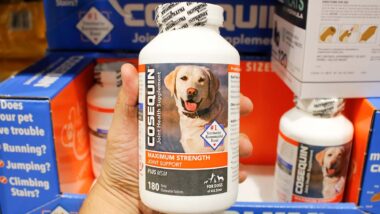Top Class Actions’s website and social media posts use affiliate links. If you make a purchase using such links, we may receive a commission, but it will not result in any additional charges to you. Please review our Affiliate Link Disclosure for more information.
‘Drug Claims’ Get Skin Care Manufacturers in Trouble with FDA
By Robert J. Boumis

Last year alone, the FDA sent out warning letters to roughly a dozen skin care companies over similar concerns. These warning letters typically advise companies that their products make “drug claims.” Legally, a product can only make certain advertising claims if it is a prescription medication and has gone through rigorous testing for efficacy and safety.
Under FDA rules, any product designed to “affect the structure or any function of the human body,” as many anti-aging products claim they do, would be a drug and subject to FDA evaluation. For example, one FDA warning letter issued to a skin care product manufacturer in 2012 took issue with the marketing phrase: “activates production of collagen and elastin critical to rebuilding and maintaining healthy skin structure.”
This claim could be at odds with the law, in that changing the way the body produces chemicals like collagen would constitute a drug claim. Typically, claims about “repairing wrinkles” or “reversing aging” can violate these laws.
Other anti-aging products use other tactics. For example, many anti-aging products contain claims that use scientific-sounding language, implying that “clinical studies” have supported their claims. Sometimes, these claims may take the form of using other scientific-sounding words, like references to “DNA” or “genetic research” or using DNA’s iconic double-helix shape in their advertisements and packaging. Just like the other drug claims, a manufacturer can only make such marketing claims if their product was subjected to the same level of clinical testing required for approval as a drug.
This testing would reveal if such products are truly effective. In the absence of this level of testing, an ineffective product could get marketed, leaving consumers over-paying for a product that may not work.
Typically, FDA warning letters allow up to 15 days for the alleged offender to respond, with a detailed explanation of the steps they will take to correct the issue and prevent it from happening again. If manufacturers do not comply, they could face “enforcement action,” which can include legal injunctions or even the seizure of their illegal products by government agents. However, these corrective actions do little to help consumers who have already purchased these products under false pretenses.
A class action lawsuit investigation has been launched to explore the possibility of legal action against the manufacturers of skin care products that may have been marketed fraudulently. Such a class action lawsuit would focus on recouping money for consumers who purchased anti aging skin care products that made drug claims, or other exaggerated claims to market their products.
If you’ve purchased anti-aging skin care products and found yourself dissatisfied with the results, you may have a case. You can start to explore your options by going to the Anti-Aging Skin Care Product Class Action Lawsuit Investigation. Here, you can enter information about your situation for a free legal review. If you qualify, you may be able to join a class action lawsuit and pursue compensation.
All class action and lawsuit news updates are listed in the Lawsuit News section of Top Class Actions















5 thoughts on‘Drug Claims’ Get Skin Care Manufacturers in Trouble with FDA
Many Anti aging creams, does not provide the details of the chemicals used. They just only claim the benefits of the product. They are just simple assumptions only, no real results.
No change in my look and I bought I 3 time
I have purchased 3 different types of anti-aging creme with 2 not showing one sign of any relief. The 3rd cream literally burning my face. Remove all these products from all markets.
I’ve spent so much money on skin care products that promise to remove or stop the aging process, I’ve just wasted a lot of money.
I have had so many drug store non prescriptions skin products to promise to alevate lines and wrinkes in as litte as four weeks. doesn’t work!